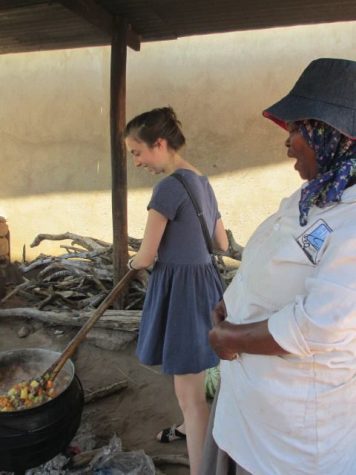QUITO: The Ecuadorian that wasn’t
In Ecuador, gringo isn’t an insult. It’s actually a term of endearment for non-Ecuadorians, and people often add ito or ita on to the end for an extra splash of love.
Most of my foreign friends are called gringas almost everyday just walking down the street, but I haven’t been specifically called a gringa once. I have, however, been generalized in a group of gringas.
Instead, I fairly frequently get mistaken as a legitimate Ecuadorian — well, until I open my mouth anyway. This confusion has an interesting mix of implications: some positive, some entertaining and others that make life a little more complicated.
The most positive side effect of my appearance is that I blend. People aren’t surprised to see someone that looks like me in public, and I’m less of a target for theft.
However, people also ask me questions like I’m a local. I’m pretty clueless about how everything operates here, so it’s usually pretty comical. People use their Ecuadorian slang around me without thinking, ask me for directions and tap on my shoulder in the library wondering about how the course catalog works or where to pay their tuition. My answer— in what I assume to be heavily accented Spanish— is always the same, “Lo siento, no tengo idea.” For the gringos out there, that means I’m sorry I have no idea.
I’ve been asked on the bus where certain stops are, and let me tell you I’m only aware of what I need to do while I’m on the bus. I know where I need to get off, and otherwise I’m focused on survival.
That might be slightly exaggerated, but in all seriousness, if someone wants a new life experience there’s a quick ticket to culture shock available on an Ecuadorian bus, unless it’s full.
Oh wait… there’s no such thing. Ecuadorian busses can always fit more people.
The downside of blending is that people assume that I know what I’m doing when I often don’t. Honestly, it’s still hard to do basic tasks here. Even when I understand the Spanish, often times I don’t understand the context. For example, I really struggled to order dinner the other night because I wasn’t sure what any of the plates tasted like. I went with this pig smorgasbord plate, and it was delicious but had a questionable texture. People understand and have patience with me once they realize that I’m not from here, but it often takes us a minute to get there.
Moments like this are very humbling. Tasks that we take for granted are suddenly a little more confusing when you are living in a different culture and language, and how I feel about my Spanish progress honestly changes on a minute-by-minute basis.
For example, today I rocked it in my art history class with Ecuadorians. I participated three times, and I felt confident about the homework I turned in. However, I also paid for a trip to go to the jungle today, and I was so confused. I didn’t understand the form and the woman behind the desk was talking so fast. But for anyone worried I got everything figured out, and I’ll be going to Tiputini, Ecuador — in the heart of the Ecuadorian Amazon— in about three weeks!






